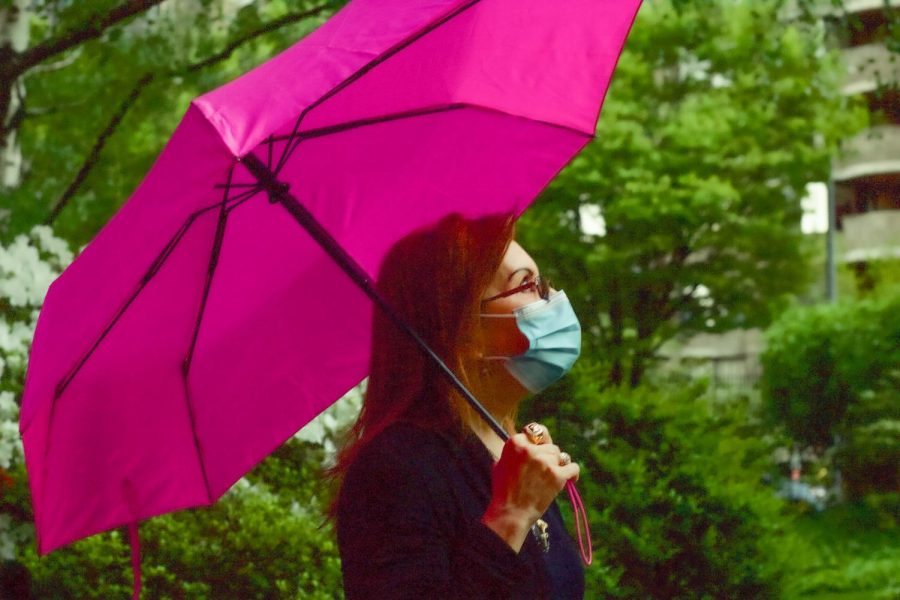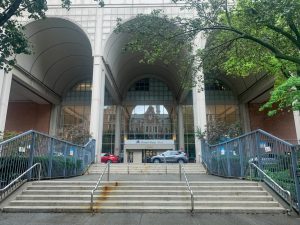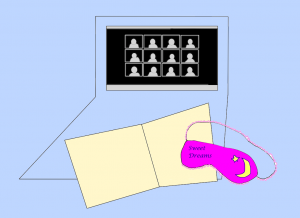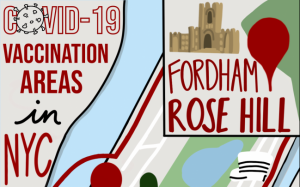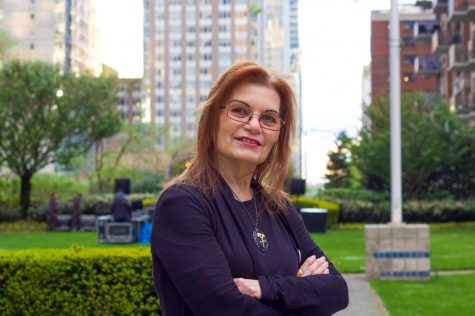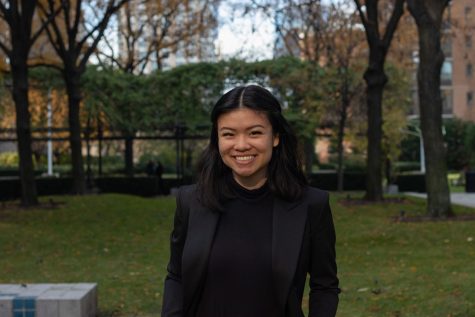What Happens When a Loved One Is Diagnosed With COVID-19?
A story of care work advocacy treating patients at home with COVID-19
Angela LoCascio, a PCS student, has taken care of her husband as he battled COVID-19 among other health issues.
May 2, 2021
Trigger Warning: Domestic and sexual abuse
I learned very early to take care of myself. I know war, I know pain and I know how to survive. At least I thought so, until COVID-19.
I am a survivor — at least, that is what I have told myself for the past two years. I am a survivor of domestic and sexual assault. In 2011 I wrote my memoir “Living With Rage: A Quest For Solace” under my pen name Angelica Harris. I know abuse; I lived to tell my story, and I have survived more trauma in my life than some soldiers in war. Not only have I dealt with the issues of violence, but in my youth, I witnessed on television the assassinations of former President John F. Kennedy, his brother Robert Kennedy, Dr. Martin Luther King Jr. and Medgar Evers. Among these tragic experiences, I am also a child of the Cold War and the Vietnam War, during which we lived in fear, hoping that the war would not come home to the states.
During the Vietnam War, I proudly served as a civilian escort liaison for fallen soldiers. I helped to bury over 30 soldiers in my neighborhood. I didn’t physically have to go to war to undergo trauma; instead, we carry the roots of PTSD within our psyche. The COVID-19 pandemic has traumatized me in more ways than I want to think about.
When you live through the trauma I have, survival mode kicks in very fast.
Survival Mode
When COVID-19 hit, somewhere in my bones I had this creeping feeling that we needed to duck and cover. Seeing people in masks in China and Europe brought back traumatic memories of the war in Vietnam. The thought of social isolation to prevent the spread of the virus only made my fear seep deeper into my bones.
Advice also came from every which way. We were told to wear masks, to wash our hands frequently and, if we felt sick, to stay home. When you live through the trauma I have, survival mode kicks in very fast. After we were told to take cover, I stopped at the pharmacy to pick up gloves and hand sanitizer. I remember the young man behind the counter reassuring me we don’t have much to worry about, and that it’s just like a bad flu. He said we will be fine.
Well, guess what? We weren’t fine. New York became an epicenter of the pandemic. We closed down. We lost our schools and businesses, and then our own communities turned into war zones. COVID-19 is the new war, and we need to fight hard with everything we have to survive it.
When the War on COVID-19 Hits Home
My husband John began to present symptoms of shortness of breath, wheezing and fatigue. John has dire health issues, so at first, we thought it was going to be one of those bad weeks. His rescue inhaler failed to work for him. We decided to see if his at-home nebulizer would help. Yet, that was not the case with John, and unfortunately the device didn’t work. He went to the doctor and few hours later, John walked inside, mask and gloves on. He said, “Don’t come too close. I have COVID!”
“You have what?” My mind was reeling. COVID-19 has been on the news, but I couldn’t fathom it being in my home.
I went into survival mode, knowing that I had to act wisely and fast to get him in isolation first, then to make sure the rest of the house was on lockdown away from him. I could not sleep in the same room as him. I was lucky to have the futon in the family room. The next day, I went to get a COVID-19 test and was negative — thank goodness.
If others like my husband and I are suffering serious health issues, why weren’t people like us taken seriously during this pandemic?
Feeling Like a Lost Child
My husband John has an immune deficiency called common variable immunodeficiency, which means that he does not have T cells to fight infection. A simple common cold could kill him. His visiting nurse comes every three weeks to my house, and over the course of 6-8 hours, John receives an injection of one of two blood products. Without these injections, John could die.
I, like John, have health issues, and without my daily meds, all my issues can become deadly. Let’s think about this: If others like my husband and I are suffering serious health issues, why weren’t people like us taken seriously during this pandemic?
For instance, at the beginning of the pandemic, supermarkets allowed senior citizens priority to shop from 6-7:30 a.m. on Saturdays. If you are an elderly person and need assistance shopping, who is going to go with you at 6 o’clock in the morning, especially when you only have 90 minutes to shop?
Doctors closed their doors, too, and you could not get an in-person doctor’s appointment. What if you are in need of medicines that require an appointment? What if you are having breathing issues that could indicate a heart attack? Because many people could not get to the doctor, they died or an underlying illness became worse. The salt in the wound is that emergency rooms did not want you either because they were handling an influx of COVID-19 patients. It seemed like no one was winning except COVID-19.
The Harsh Reality of COVID-19
COVID-19 is more contagious than the flu. There have been over 3.11 million deaths worldwide. The number adds up to more than the battle-related American death toll of several U.S. wars, including World Wars I and II, the Gulf War, the Vietnam War, and 9/11. Is that enough to tell people how monstrous this virus is?
What frustrates me is that when we were first told about this virus, we thought that it was just like the flu, maybe worse. I know that I did, even when I saw some of my fellow Fordham students showing up with masks in the classrooms. Why did we not follow their examples? Just by following their lead, we could have started a chain reaction to help stop the spread. I do admit, the day I put a mask on for the first time, it frightened me. COVID-19 put us in isolation and made us feel inferior.
What bothers me is how many of us thought this was just like the flu. But the statistics show that COVID-19 is not just the flu. Again, did the flu shut down our schools, businesses, travel, or life events like graduations and weddings? No, but COVID-19 did.
Reaching Out for Help
When faced with my husband’s diagnosis, all I could do was be a warrior and ask for help. My brother, who has over 30 years of frontline hands-on experience, and my friend, the manager of emergency nursing at Long Island Jewish Medical Center, are nurses who provided great advice about the situation.
They told me to serve John his food on paper plates, to use plastic utensils and paper napkins, and to give him a private receptacle for trash. Breakfast, lunch and dinner were served by me because he could not come into the kitchen and risk infecting the other people in the room with COVID-19.
The first few days weren’t so bad, but after a while, that survival mode increased as I began to feel like a warden in a prison, and my isolated patient began to feel like a prisoner on house arrest. Except his only crime was getting COVID-19. You are not the jailor; COVID-19 is, and it keeps all the damned keys.
By the second week of isolation, I could see the loneliness in John’s face under that mask and after I served his meals I would sit on the floor behind a closed door to talk with him for a while. I felt helpless. The rooms were too quiet, and I began to feel alone and fatigued.
They say that patience is a virtue, and believe me, when dealing with a COVID-19 patient at home, it surely is.
A (Mostly) Happy Ending
They say that patience is a virtue, and believe me, when dealing with a COVID-19 patient at home, it surely is. If you find yourself in this situation, please have patience with your family member and with yourself.
Please make sure that you rest, eat well and go out for walks wearing a mask. You need to clear your head; you need to survive too. Call or Zoom with a friend and have a positive conversation. If you need some mental health assistance, talk with a social worker. Fordham has the Counseling and Psychological Services located in G5 at the Lincoln Center campus, and your primary physician can assist you by recommending a mental health provider. For spiritual help, say a prayer to the god you believe in. It never hurts to pray and ask for strength and guidance. As for me, I have a social worker. Her name is Robin Burnette, and she helped me greatly.
Word to the wise, even if you feel well, go for another COVID-19 test right away if you have been taking care of someone with COVID-19 or suspect you have been exposed to someone with the virus. It will ensure that you are not infected and put your mind at ease. You have been working hard, taking care of this patient in an up-close and personal way. Make sure that you are ready to get back in the game so that you both can enjoy life again.
From now on, we, as a nation, must take heed from other countries when facing such a big challenge, and they must take heed from us. We now have the vaccine. Please do not be afraid of the vaccine. Go and arm yourself against this dangerous disease. Let’s do this together. We are all survivors!

